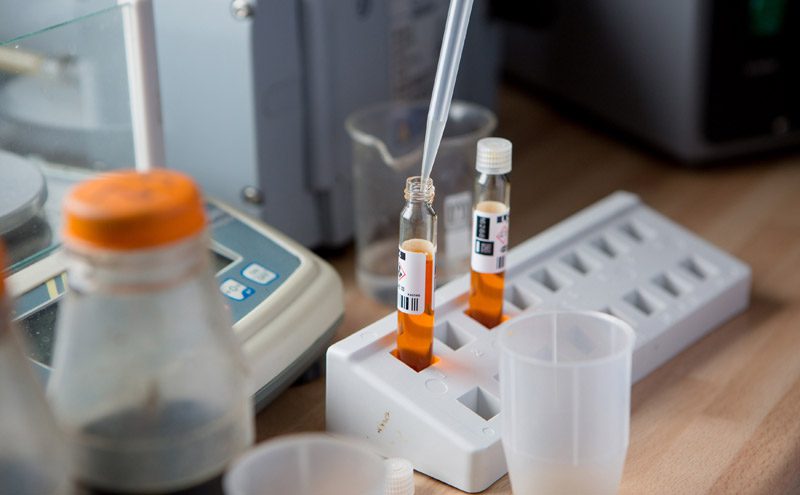
Amur is addressing the anaerobic digestion market with the launch of a feedstock blended to a specification designed expressly to optimise productivity – a first, according to the company.
The blended ‘soup’ – manufactured from food waste and sold under the Ch4rger brand – is mixed to a fixed specification. It provides AD operators with a consistent product, which supports a finely-tuned biocommunity that maintains peak performance and, in turn, leads to a more regular production of gas, says the firm.
Nigel Lee, General Manager at Amur – which produces Ch4rger – described the new product as a natural development for the company. Amur’s parent company, AB Agri, has been routing food manufacturing by-products into animal feeds for 36 years. He explained that by buying into the concept, food manufacturers will be able to fully exploit the value inherent in co-products and wastes, by pushing them through the channel which generates the most value (animal feed or AD), while also guaranteeing the best possible environmental performance.
Lee said: “This is an industry first and we are extremely proud to be able to launch it to the market. We have been generating profitable disposal routes for co-products for over 30 years, while providing the skilled technical know-how to ensure that animals are fed the right blends for peak performance. In creating Ch4rger, we spent three years applying our wealth of biological expertise to blending wastes, in order to produce a fixed specification.
“In practice, this means we are able to advise customers on the most cost effective route for by-products. Most producers these days prefer the AD route, but productivity varies hugely between plants. If customers choose to send animal by-product and other wastes to Amur, they can be certain that their material will not just be a tick towards sustainability – any food waste used to make Ch4rger is having a significant impact on the productivity of the AD plant it feeds. We also work with a waste management partner to ensure that our suppliers benefit from excellent levels of confidential packaging recycling.”
Amur works directly with food manufacturers and third party waste contractors to source feedstock. General Manager Nigel Lee said: “We produce Ch4rger both for our own use and as a commercial feedstock for other AD plants so, unlike individual operators whose requirements for feedstock go up and down, we never have to turn feedstock away. We are also able to use our wealth of knowledge in feeding animals to advise contractors on the most cost effective application for different types of food waste.”
Amur has demonstrated its long-term commitment to AD by building its own gas to grid site. The 3MW facility in Yorkshire processes 60,000 tonnes of food waste, to deliver 40,000 MwH per year. Lee said: “We built the plant because we wanted to show the industry that we can do a good job, but we also wanted to completely understand the pitfalls and challenges involved in operating an AD plant. Our priority is the biological health of our plant; we are feeding it 100 per cent on our Ch4rger recipe, and the biology is extremely consistent. During ramp up, the FOS/TAC has typically been at 0.3, which is exactly where we would expect a healthy biology to be at this stage in the process – bacteria are being challenged to convert more and more food to energy on a daily basis.”
AD plants often struggle to optimise gas production. This is largely due to variance in the feedstocks fed to the plant. Just like the human stomach, the bacteria that produce biomethane struggle when the feedstock changes. Feeding a plant consistently helps the bacterial population and health, which, in turn, helps to optimise the volumes and consistency of gas which is produced.
Lee concluded: “People like our soup, because we have taken the nutritional and biological expertise that we have garnered for 36 years in AB Agri, and transferred that across to waste. We are unique in being able to mix a waste to a specification, which provides AD operators with a consistent product which allows the plant to fulfill its potential.”








